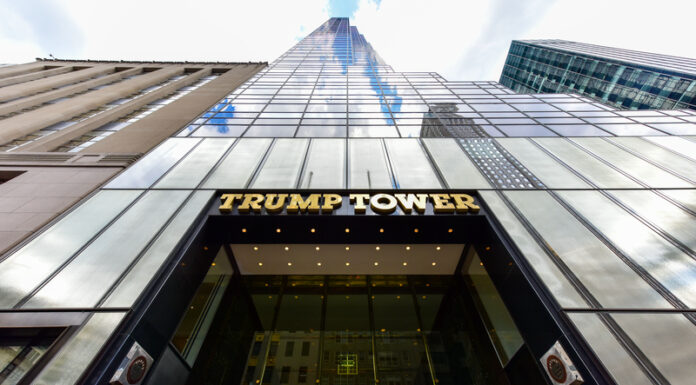Following the re-election of Donald Trump, College Republican groups throughout the United States are experiencing a surge in membership. Some clubs have reported doubling their numbers since the start of the fall semester.
At the Stern School of Business at New York University (NYU) in New York City, where Barron Trump, the son of the re-elected president, is a freshman, weekly meeting attendance at the College Republican Club has increased from five to 40 members. Despite Barron not being a member of the group, his presence on campus has sparked interest.
“This election made a lot of people more optimistic about the future of conservatism in general, I think, although [our] presence on a liberal academic campus like NYU is still generally looked down upon,” said Kaya Walker, a senior studying French and the president of NYU’s College Republican Club.
Walker acknowledged the attention surrounding the president-elect’s son, mentioning, “He’s kind of watched like a zoo animal.”
Barron’s influence reaches beyond political circles. Sources describe him as being well-liked and state that “even liberal people like him.” His presence has attracted significant social media attention, with students often sharing photos of him in class.
The rise in Republican Club membership at NYU mirrors a wider trend across US universities. The Penn State chapter has seen its membership double to 200 active members this academic year. Tristin Kilgore, the vice president of Penn State College Republicans, suggests the pandemic experiences of these students partially account for Trump’s popularity.
Kilgore, a 20-year-old philosophy sophomore, explained that high school had been a tough time. She expressed that they weren’t supporting those who had advocated for keeping students away from their friends and schools and who had set them back in life.
The University of Michigan’s College Republican Club, the oldest in the country, has seen membership rise by about a third, reaching 445 students. It makes it roughly half the size of the university’s Democratic Club. The chapter’s president forecasts further growth in the following months due to the new presidency.
Membership in the College Republicans at Babson College in Wellesley, Massachusetts, has significantly increased over the semester, doubling to 73 members. Neko Kady, a sophomore studying tech entrepreneurship and the club’s president, noted that the group is attracting more engagement as it sheds its image as a small, stereotypical gathering. Kady described the club’s response to the election results as one of excitement and celebration.
The College Republicans Club at the University of North Carolina reported that its membership more than doubled in the two months leading up to the election, growing from 120 to 250 members. This rise in conservative activism is becoming evident on many campuses, with students openly displaying MAGA hats in public spaces, including libraries.
Alexander Richmond, president of the University of Michigan’s College Republicans chapter, noted a shift in how first-year students are interacting with the club. He said that many students are challenging what is commonly seen as a dominant left-leaning culture and bias on college campuses.
Richmond, a 19-year-old political science major, pointed out that while conservative freshmen usually remained silent, his club is now attracting unprecedented numbers of first-year members.
Conservative student organizations are experiencing a revival at universities nationwide, marking a notable transformation in campus political landscapes. The phenomenon spans institutions of all sizes – from significant state schools to private colleges – as Republican student groups report surging membership numbers.
This grassroots momentum reflects broader shifts in youth political engagement, with traditional conservative clubs attracting students seeking spaces for political discourse and activism. Some chapters have seen their rosters expand to twice their previous size within a single semester, suggesting a significant realignment in how college students engage with conservative ideas and organize on campus.
For a generation shaped by the challenges of the pandemic and seeking alternatives to the prevailing campus culture, these clubs are becoming a dynamic platform for political expression and community. As conservative activism continues to rise, these students are positioning themselves as a significant force shaping the future of campus politics and beyond.








